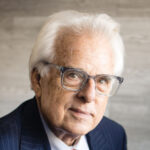I have called obesity “the new global warming,” an issue that is often as much about politics as it is about the science of weight.
A new study supports my hypothesis. Apparently, long-term weight loss is very rare, that most of the pounds lost in diets soon return. Moreover, there isn’t much that can be done about it.
But here’s an intriguing angle to the story: The scientists don’t tell that apparently well-known truth to the public. From the CBC News story:
So if most scientists know that we can’t eat ourselves thin, that the lost weight will ultimately bounce back, why don’t they say so? Tim Caulfield says his fellow obesity academics tend to tiptoe around the truth. “You go to these meetings and you talk to researchers, you get a sense there is almost a political correctness around it, that we don’t want this message to get out there,” he said. “You’ll be in a room with very knowledgeable individuals, and everyone in the room will know what the data says and still the message doesn’t seem to get out.”
In part, that’s because it’s such a harsh message. “You have to be careful about the stigmatizing nature of that kind of image,” Caulfield says. “That’s one of the reasons why this myth of weight loss lives on.”
Health experts are also afraid people will abandon all efforts to exercise and eat a nutritious diet — behaviour that is important for health and longevity — even if it doesn’t result in much weight loss.
At best. this is paternalism. But I think Caulfield hit on the larger truth in the quote I italicized: At least some scientists are afraid that if they tell the politically incorrect truth, their grant money will dry up, they will be called “deniers” or some such pejorative, accused of being Luddites who thwart progressive public policy. In short, they will be treated as badly as global warming scientists who question the reigning alarmist orthodoxy.
The bigger point here, I think, is that people know that “science” has become substantially politicized: Too often, “studies” are generated to “prove” precisely what the authors or sponsors wanted.
In other words, science is sometimes science. But sometimes it is actually political or cultural advocacy pretending to be “science.”
And isn’t it interesting that those who call most loudly castigate those who disagree with them on policy or ethical issues as somehow “anti-science,” are often the most hyper-political players in the public square?
Author Profile

Latest entries
- BlogJanuary 27, 2015Ready or Not: Here Comes 2015 in Bioethics!
- BlogOctober 20, 2014A Case of Surrogacy’s Gordian Knot
 BlogAugust 19, 2014Transhumanism’s Eugenic Authoritarianism
BlogAugust 19, 2014Transhumanism’s Eugenic Authoritarianism- BlogAugust 13, 2014Suicide Cult Pushes Home Made Suicide Kits

